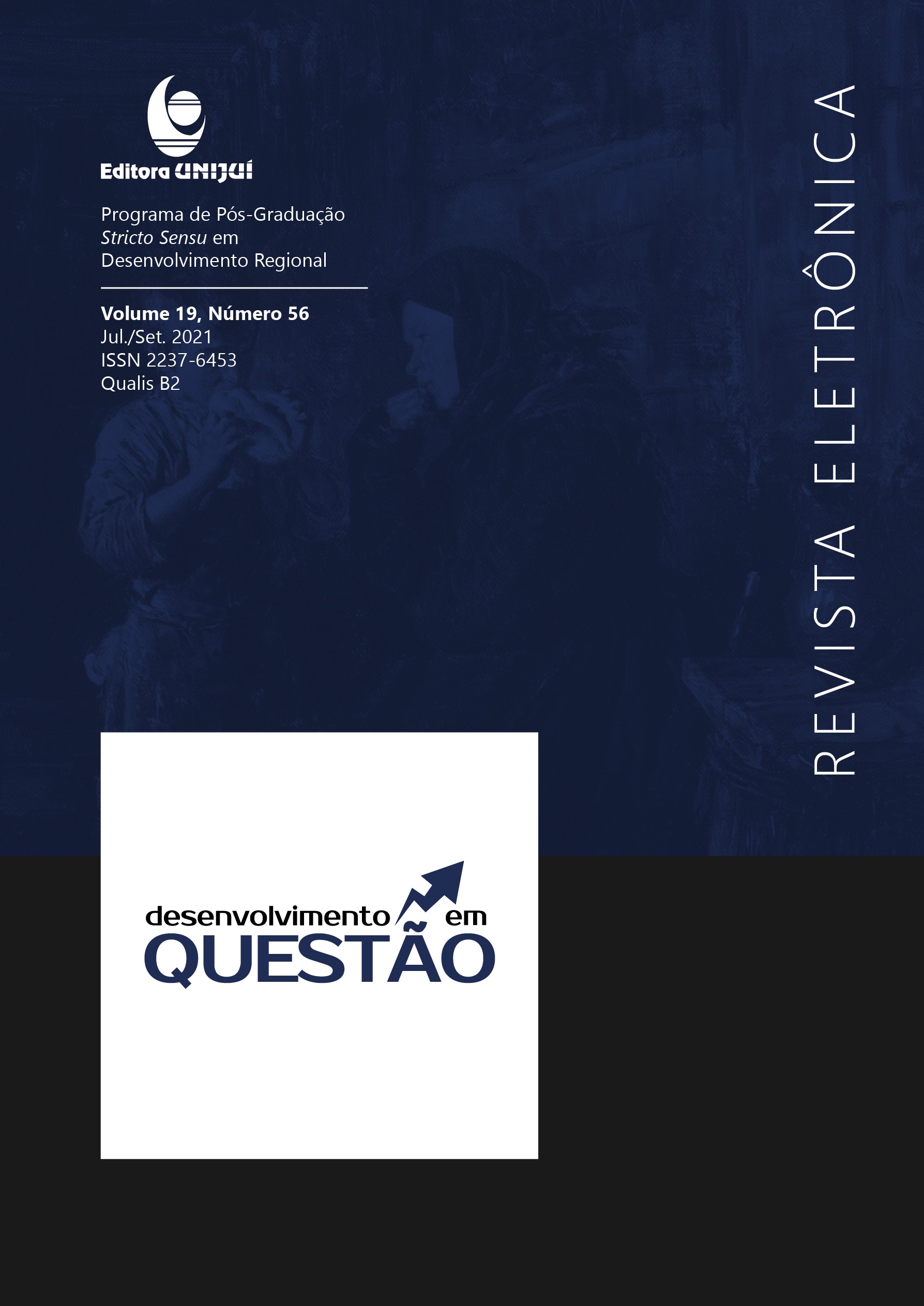SOCIAL MANAGEMENT, PARTICIPATION AND TERRITORY: THE CASE OF CALIFORNIA DISTRICT IN BARRA DO PIRAÍ-RJ
SOCIAL MANAGEMENT, PARTICIPATION AND TERRITORY: THE CASE OF CALIFORNIA DISTRICT IN BARRA DO PIRAÍ-RJ
DOI:
https://doi.org/10.21527/2237-6453.2021.56.10562Keywords:
Social participation. Territory. Social management.Abstract
The article focuses on analyzing the social participation during the process of annexation of the California District, in Barra do Piraí, to the municipality of Volta Redonda, both located in the Vale do Paraíba microregion, in the state of Rio de Janeiro. Seeks to problematize the participatory dynamics about the new territorial conformation about the residents' desires for annexation. The bibliographic review starts from the discussion about participation, understood as a process of achievement related to mobilization and social organization in the claim of specific collective interests and rights. The territory, in this way, would constitute a space with an identity understood not only as a geographical or physical reality, but a human, social, cultural and historical reality. In turn, social management is defined by a dialogical, participatory relationship between social actors in the territory with the purpose of discussing common issues and deliberating on actions to be established for the common good. The research methodology, of qualitative nature and exploratory type, adopts the method of the single case study and the data collect was performed by bibliographic, documentary and field research. Data treatment followed content analysis with the definition of categories by mixed grid. The results show that the annexation would legitimize the desire of the local population to belong to the municipality with greater geographical proximity, but, mainly, with a better provision of public services.
Downloads
Published
How to Cite
Issue
Section
License
By publishing in Revista Desenvolvimento em Questão, authors agree to the following terms:
All works are published under the Creative Commons Attribution 4.0 International License (CC BY 4.0), which allows:
Sharing — to copy and redistribute the material in any medium or format;
Adaptation — to remix, transform, and build upon the material for any purpose, even commercially.
These permissions are irrevocable, provided that the following terms are respected:
Attribution — authors must be properly credited, a link to the license must be provided, and any changes made must be indicated.
No additional restrictions — no legal or technological measures may be applied that legally restrict others from doing anything the license permits.
Notices:
The license does not apply to elements that are in the public domain or covered by legal exceptions.
The license does not grant all necessary rights for specific uses (e.g., image rights, privacy, or moral rights).
The journal is not responsible for the opinions expressed in the articles, which are the sole responsibility of the authors. The Editor, with the support of the Editorial Board, reserves the right to suggest or request modifications when necessary.
Only original scientific articles presenting research results of interest that have not been previously published or simultaneously submitted to another journal with the same purpose will be accepted.
Mentions of trademarks or specific products are intended solely for identification purposes and do not imply any promotional relationship by the authors or the journal.
License Agreement (for articles published from 2025 onward): Authors retain the copyright to their article and grant Revista Desenvolvimento em Questão the right of first publication.











